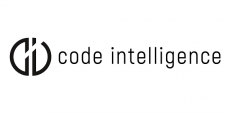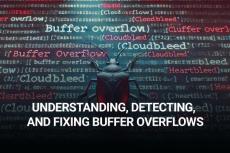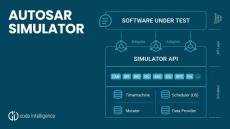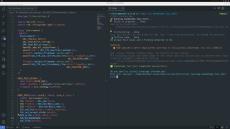|
By Natalia Kazankova
At the 6th de:hub Pitch Night, an event celebrating innovation and digital transformation, Code Intelligence was honored with the prestigious German AI Award. This recognition, awarded by a distinguished jury of industry experts and investors, underscores Code Intelligence’s pivotal role in advancing software security through artificial intelligence.
|
By Natalia Kazankova
Fuzz testing is most commonly classified based on its analysis approach. The two main categories of fuzz testing solutions are white-box and black-box fuzzers. In this blog, we explain the difference between approaches as well as their main features.
|
By Code Intelligence
Spark Uncovers Vulnerability in WolfSSL During Beta Testing.
|
By Peter Samarin
We are super excited to announce the discovery of a heap-based use-after-free vulnerability in wolfSSL, identified through a fuzz test automatically generated by an AI Test Agent. This marks another milestone in advancing automated security testing and demonstrates the power of AI-driven tools to improve software reliability and safety.
|
By Natalia Kazankova
White-box fuzz testing has proven highly effective in finding critical bugs and vulnerabilities. Tech giants like Google and Microsoft uncover thousands of issues using this method. But why doesn’t every company adopt fuzz testing as part of their testing strategy? The main barrier is the high level of manual effort and the extensive time required to properly set it up and maintain it.
|
By Natalia Kazankova
The market of embedded computing has been growing constantly, and this trend is expected to continue in the near future. Notably, embedded systems are key components for the Internet of Things (IoT) and for Cyber Physical Systems (CPSs). In the embedded software industry, secure software development is critical. This is especially true because embedded software often involves vital industries, such as medical devices or automotive solutions.
|
By Sergej Dechand
We are beyond excited to share some fantastic news with our community: Jazzer is now fully open source again under the Apache 2.0 license!
|
By Natalia Kazankova
Buffer overflows are one of the oldest and most dangerous vulnerabilities in software security. A heap buffer overflow was the second most exploited vulnerability in 2023. Over the years, it has enabled countless attacks, often with severe consequences, such as Cloudbleed in 2017. Despite advances in security practices, buffer overflows continue to pose significant risks, especially in software written in low-level languages like C and C++.
|
By Code Intelligence
AUTOSAR Simulator Enables Automotive Suppliers to Test Complete AUTOSAR Systems for Security Issues and Bugs Without Hardware.
|
By Khaled Yakdan
Testing Classic AUTOSAR applications has long been a significant challenge due to the reliance on hardware-in-the-loop (HiL) setups, which are costly, complex, and hard to scale. Code Intelligence’s new lightweight AUTOSAR simulator revolutionizes this process by enabling entire AUTOSAR applications to run on x86 Linux systems, thus facilitating software-in-the-loop (SiL) testing.
|
By Code Intelligence
About this webinar: Join the webinar to learn and see an in-depth live demo on how you can leverage fuzz testing to detect out-of-bound memory access bugs and similar vulnerabilities in C and C++ projects.
|
By Code Intelligence
The Crowdstrike incident is a recent example of out-of-bounds memory access in C/C++ causing a crash. CrowdStrike reported that problematic content in Channel File 291 triggered an out-of-bounds memory read, leading to a Windows operating system crash (BSOD). Another critical example with the exact root cause is the Heartbleed vulnerability, which affected the OpenSSL library. Remarkably, fuzz testing could identify this issue in less than 10 seconds. Watch the video to see fuzz testing in action.
|
By Code Intelligence
Sergej Dechand, Code Intelligence's CEO, demonstrates how developers can submit new code, which is automatically tested and analyzed for security issues. Sergej explains the process of running tests, assessing findings, and integrating with ticketing systems. You'll also see how to measure code coverage and download reports. It includes all the mentioned use cases with simulating hardware and autogenerated fuzz test setup..
|
By Code Intelligence
CARIAD has been building one unified software platform for all Volkswagen brands to provide them with reliable software and digital best practices. In recent years, CARIAD and the rest of the automotive software sector faced extensive industry regulation and an array of dangerous and costly vulnerabilities. By introducing feedback-based fuzzing, an advanced white-box testing method that uses self-learning AI to uncover deeply hidden bugs and security vulnerabilities, CARIAD was able to find and fix potentially dangerous issues early in the development process.
|
By Code Intelligence
The manual effort required to set up dynamic testing methods such as feedback-based fuzzing, presents a major barrier to adoption to many dev teams. CI Spark obliterates this barrier by automating the most labor-intensive parts of AI-powered white-box testing, which is identifying relevant entry points (e.g., an API that handles user data) and developing tests that are tailored to their structure.
|
By Code Intelligence
In today's fast-paced software environment, third-party code has become irreplaceable. With 96% of codebases containing open-source dependencies, the image is clear: open-source is ubiquitous in the development landscape.
|
By Code Intelligence
In this webinar excerpt, our colleague Peter Samarin demonstrates how our prototype pollution bug detectors were able to uncover a highly severe CVE in the popular JavaScript library protobufjs. This finding puts affected applications at risk of remote code execution and denial of service attacks.
|
By Code Intelligence
Our colleagues Peter Samarin, Norbert Schneider and Fabian Meumertzheim recently built a new bug detector enabling our JavaScript fuzzing engine Jazzer.js to identify Prototype Pollution. This work is now bearing its first fruits: As part of our ongoing collaboration with Google’s OSS-Fuzz, Jazzer.js recently uncovered a new Prototype Pollution vulnerability in protobuf.js (CVE-2023-36665). This finding puts affected applications at risk of remote code execution and denial of service attacks.
|
By Code Intelligence
Learn how AI.powered white-box testing leverages the internal design of the software under test to bugs and vulnerabilities that are off-limits to traditional testing methods.
|
By Code Intelligence
Join us for a weekly chat about all things fuzzing, live demos, Q&A's, and more.
- January 2025 (4)
- December 2024 (3)
- October 2024 (3)
- September 2024 (3)
- August 2024 (4)
- July 2024 (2)
- June 2024 (1)
- May 2024 (4)
- April 2024 (4)
- March 2024 (3)
- February 2024 (1)
- January 2024 (2)
- December 2023 (1)
- October 2023 (2)
- September 2023 (3)
- August 2023 (4)
- July 2023 (3)
- June 2023 (1)
- May 2023 (2)
- April 2023 (8)
- March 2023 (10)
- February 2023 (8)
- January 2023 (6)
- December 2022 (11)
- November 2022 (14)
- October 2022 (13)
- September 2022 (10)
- August 2022 (2)
- June 2022 (2)
- May 2022 (1)
- April 2022 (1)
- February 2022 (2)
- January 2022 (2)
- December 2021 (9)
Code Intelligence leverages the best of static and dynamic application security technologies, including advanced fuzz testing, to achieve maximum code coverage without false-positives.
Code Intelligence enables companies to simplify their software testing processes. Our solution - the CI Security Suite - enhances security testing efficiency for experts and enables developers without IT security expertise to perform continuous automated security and reliability tests. In this way, the development process can be accelerated and continuous quality management can be realized.
Secure Your Code With Each Pull Request:
- Choose Your Tech Stack: Code Intelligence can be integrated into all your favorite build systems, IDEs, ticket systems, issue trackers, and CI/CD tools.
- Set Up Fuzz Tests in Minutes: Through automated instrumentation and endpoint detection, Code intelligence makes fuzzing as simple as writing Unit Tests. No need to write fuzz targets or test harnesses.
- Scan Applications Continuously: Our platform features runtime error detection, advanced REST and gRPC API tests, and reliable OWASP vulnerability detectors. You can configure Code Intelligence to run security tests every night, or at each pull request.
- Reproduce Your Findings: Our easy-to-use GitHub integration and debugging features enable you to reproduce all findings without false-positives. Each error message comes with detailed input data, stack trace, and log documentation which can be easily shared with the team.
- Prioritize Security Issues: Our user-friendly dashboard classifies bug reports and vulnerabilities based on severity, so you have everything you need to come up with a well-informed decision on how to proceed with a finding. Manage findings directly within in your IDE or feed them straight into your favorite ticketing systems, and issue trackers.
Find, Triage, and Fix Security Issues at Scale .




















